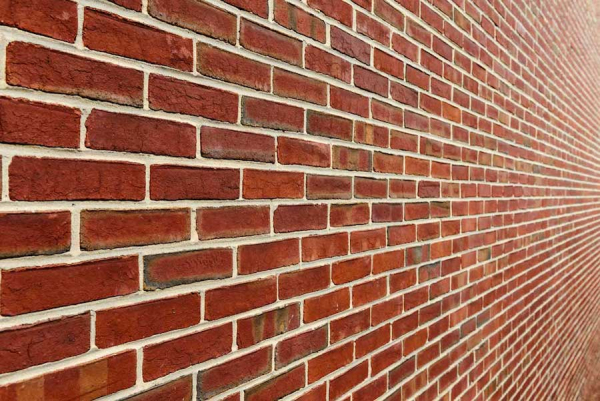Hiring a good tuckpointing contractor is crucial for several reasons:
Quality Workmanship: Tuckpointing is a specialized skill that involves repairing and restoring the mortar joints in brick or stone masonry. A skilled contractor will have the expertise and experience to perform the work with precision, ensuring that the finished product looks good and functions effectively.
Structural Integrity: Tuckpointing plays a significant role in maintaining the structural integrity of a building. When mortar joints deteriorate, it can lead to water infiltration, which can cause further damage to the masonry, compromising the stability of the structure. A good contractor will properly assess the condition of the mortar and provide the necessary repairs to ensure the building's stability.
Water Resistance: Tuckpointing is essential for maintaining the water resistance of a building. Properly repaired mortar joints help prevent water from seeping into the walls, which can lead to mold growth, rot, and other moisture-related problems. A skilled contractor will use the right materials and techniques to create a watertight seal.
Aesthetic Appeal: Tuckpointing is not just about functionality; it also contributes to the appearance of a building. A skilled contractor can match the new mortar color and style to the existing masonry, ensuring a seamless and attractive finish. This attention to detail can enhance the curb appeal and value of the property.
Longevity: When tuckpointing is done correctly, it can extend the life of a building's masonry. A good contractor will use high-quality materials and craftsmanship that can withstand the test of time, reducing the need for frequent repairs.
Cost-Efficiency: While hiring a highly skilled tuckpointing contractor may come with a higher upfront cost, it can ultimately save you money in the long run. Properly executed tuckpointing can prevent more extensive and costly repairs or replacements down the road.
Compliance with Codes and Regulations: A reputable contractor will be knowledgeable about local building codes and regulations related to tuckpointing. Hiring a professional ensures that the work is done in compliance with these standards, reducing the risk of legal issues or penalties.
Safety: Tuckpointing often involves working at heights and using specialized equipment. A professional contractor will prioritize safety by following industry best practices, reducing the risk of accidents or injuries during the project.
In summary, hiring a good tuckpointing contractor is essential to ensure the longevity, structural integrity, and aesthetic appeal of your building. It's an investment in the maintenance and preservation of your property, which can save you money and headaches in the long term. When choosing a contractor, be sure to research their qualifications, check references, and ask for examples of their past work to ensure you're hiring the right professional for the job.
Having a high-quality roof is essential for various reasons, as it plays a crucial role in protecting your home and ensuring its longevity. Here are some of the key reasons why having a great-quality roof is important:
Weather Protection: A durable and well-maintained roof protects against the elements, including rain, snow, wind, hail, and extreme temperatures. It helps keep your home dry and comfortable, preventing water damage and leaks that can compromise the structural integrity of your property.

Structural Integrity: The roof is integral to your home's structure. A high-quality roof contributes to the overall stability and strength of your house, preventing structural issues that could be costly to repair.
Energy Efficiency: An energy-efficient roof can help regulate your home's temperature, reducing the need for excessive heating or cooling. This can result in lower energy bills and a reduced carbon footprint.
Longevity: High-quality roofing materials and proper installation can significantly extend the lifespan of your roof. Investing in a great quality roof can save you money on frequent repairs and replacements over the long term.
Home Value: A well-maintained and attractive roof can enhance the curb appeal of your home. When it comes time to sell your property, a great quality roof can increase its market value and make it more appealing to potential buyers.
Safety and Health: A roof in good condition helps maintain a safe and healthy indoor environment. It prevents water intrusion and the growth of mold and mildew, which can have adverse effects on your health and the structural integrity of your home.
Insurance Benefits: Some insurance companies offer lower premiums to homeowners with high-quality roofs because they are less likely to file claims for damage caused by weather events.
Peace of Mind: Knowing you have a reliable roof over your head can provide peace of mind. You won't have to worry about sudden leaks or expensive repairs due to roofing issues.
Environmental Impact: Environmentally friendly roofing materials can contribute to sustainability efforts by reducing the environmental footprint of your home and helping conserve energy.
Compliance with Building Codes: Many local building codes and regulations require homes to have a certain standard of roofing quality. Ensuring your roof meets these standards is essential for compliance and safety.
In summary, having a great quality roof is crucial for protecting your home, ensuring its longevity, improving energy efficiency, maintaining property value, and providing peace of mind. Regular maintenance and periodic inspections are also essential to keep your roof in excellent condition and address any issues promptly
A good masonry professional is important to hire for various reasons, as their expertise and skills are essential for ensuring the success, safety, and quality of masonry projects. Here are several key reasons why you should hire a qualified masonry professional:
-
Expertise and Experience: Masonry professionals have extensive knowledge and experience in working with various types of masonry materials, including bricks, concrete blocks, stone, and mortar. Their expertise ensures that the job is done correctly the first time.
-
Quality Workmanship: Skilled masons are trained to perform high-quality work, resulting in durable and aesthetically pleasing structures. Their work often stands the test of time, reducing the need for costly repairs or replacements down the road.
-
Structural Integrity: Masonry work is an integral part of building construction, providing structural support and stability. A professional mason will ensure that your masonry components, such as walls, foundations, and chimneys, are built to code and can withstand environmental stresses and loads.
-
Safety: Safety is a top priority in masonry work. Professional masons are well-versed in industry safety standards and practices, reducing the risk of accidents on the job site. They also ensure that masonry structures are built with safety in mind.
-
Local Building Codes and Regulations: Masonry work often needs to comply with local building codes and regulations. A professional mason is knowledgeable about these requirements and will make sure that your project meets all necessary standards.
-
Cost-Effective: While hiring a professional mason may seem more expensive upfront, it can save you money in the long run. Their work is less likely to require repairs or replacements, reducing maintenance costs.
-
Design and Aesthetics: Masonry professionals can provide design input and create aesthetically pleasing structures. They can offer guidance on the selection of materials, patterns, and finishes to match your desired look and style.
-
Time Efficiency: Professional masons have the skills and tools to complete projects efficiently. They can meet deadlines and ensure that your project progresses as scheduled, which is important for construction or renovation projects.
-
Proper Equipment and Tools: Masonry professionals have access to the right tools and equipment for the job. This ensures that the work is done accurately and efficiently, and it minimizes the risk of accidents.
-
Warranty and Insurance: Reputable masonry professionals often provide warranties for their work, offering you peace of mind. They are also likely to have insurance coverage, which protects you and your property in case of unforeseen incidents.
-
Project Management: Masonry projects can be complex, involving various tasks and trades. A professional mason can effectively manage the project, coordinating with other contractors and ensuring that everything runs smoothly.
-
Long-Term Value: Well-executed masonry work can add value to your property. Whether it's a beautifully designed brick wall, a well-constructed foundation, or an elegant fireplace, professional masonry enhances the aesthetic and functional appeal of your property.
In summary, hiring a good masonry professional is crucial for ensuring the success, safety, and quality of your masonry projects. Their expertise, experience, and attention to detail contribute to the long-term durability and value of your property.



